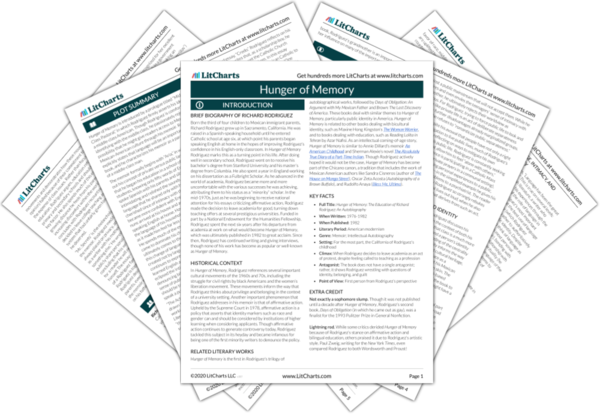Closing the essay, reflects on the deep uneasiness he began to feel in the mid-1970s as he began to apply to permanent teaching positions post-graduate school. He received countless prestigious offers, but couldn’t shake the feeling that he was only being offered these positions because he was a “minority.” He recalls a pivotal conversation with a fellow graduate student, who was depressed because the only job offer he’d received would require him to move away from his young daughter. When Rodriguez admitted to his colleague that he had, in fact, gotten an offer from Yale but hadn’t made up his mind about it, the colleague replied, “You’re the one who gets all the breaks.” Rodriguez was angered by this comment and found himself defending affirmative action, to his own disgust. The colleague, who was Jewish, dismissed him saying, “There isn’t any way for me to compete with you. Once there were quotas to keep my parents out of schools like Yale. Now there are quotas to get you in. And the effect on me is the same as it was for them.” In this moment, Rodriguez realized that, though he wanted the life of an academic, he had to protest the unfair place the university had become. He declined all the offers he’d received. When he called his parents to inform them, his , upset, said, “I don’t know why you feel this way. We never had any of the chances before.” Rodriguez writes: “
We, he said. But he was wrong. It was
he who had never had any chance before.”


